How to Clean Powder Coating Hooks: Comprehensive Guide with Pros, Cons, and Best Practices
Keeping powder coating hooks clean is essential for strong grounding, effective powder attraction and longer hook life. Powder buildup on hooks impacts conductivity, grounding, and coating quality. Here’s a detailed guide on various cleaning methods, covering pros, cons, and important considerations like hook size and chemical disposal.
1. Burn-Off Oven Cleaning
- Description: Burn-off ovens incinerate powder coating on hooks, turning it to ash for easy removal. This method is well-suited for hooks with substantial powder buildup.
- Process: Hooks are heated between 650°F and 800°F to break down coatings.
- Pros:
- Efficient for High Volume: Cleans large batches at once, ideal for high-throughput operations.
- Complete Powder Removal: Eliminates multiple layers, restoring hooks to bare metal.
- Cons:
- Risk of Warping: Smaller hooks may warp at high temperatures; over time, all hooks may wear down with repeated cycles.
- High Initial and Maintenance Costs: Burn-off ovens are costly to buy, maintain, and operate due to high energy consumption.
- Safety Requirements: Requires proper ventilation, PPE, and regular maintenance.
- Check out ECE Canada for information on Burn off ovens. www.ececanada.com
2. Chemical Stripping
- Description: Chemical stripping uses solvents or caustic solutions to dissolve coatings, preserving hook structure.
- Process: Hooks are soaked in a chemical bath that breaks down the coating, followed by rinsing to remove residue.
- Pros:
- Gentle on Hooks: Ideal for smaller hooks prone to warping under heat.
- Precision: Effective on intricate or delicately shaped hooks where abrasion could be too harsh.
- Cons:
- Wastewater Disposal: Requires compliance with environmental regulations, adding cost for disposal.
- Safety Measures: Requires PPE and safe disposal practices.
- Chemical Deterioration: Chemicals lose potency over time, requiring periodic replacement, which increases costs and disposal needs.
- Check out Greensolv for some a save and effective cleaning chemical options. www.greensolv.com
3. Abrasive or Media Blasting
- Description: High-pressure abrasives are used to remove powder coatings, effective for heavy buildup.
- Process: Abrasive particles, like aluminum oxide, are blasted onto the hooks to strip off coatings.
- Pros:
- Fast and Effective: Removes stubborn buildup efficiently.
- Customizable: Media and pressure can be adjusted based on hook size and coating thickness.
- Cons:
- Gradual Hook Wear: Regular use can thin out hooks, especially smaller ones.
- Dust and Debris: Requires enclosed spaces and PPE for dust control.
- Labor Intensive: Can be time-consuming if processing large volumes.
4. Fluidized Bed Cleaning
- Description: Hooks are immersed in a bed of heated abrasive particles for thorough cleaning.
- Process: Hooks are placed in the fluidized bed, where heated particles uniformly abrade coatings.
- Pros:
- Even Cleaning: Ideal for complex shapes, providing uniform removal.
- Batch Processing: Efficient for cleaning multiple hooks at once.
- Cons:
- Heat Sensitivity: Smaller or thinner hooks may warp.
- High Cost: Fluidized beds require a substantial initial investment.
5. Manual Scraping or Wire Brushing
- Description: This low-tech approach uses brushes or scrapers for targeted cleaning.
- Process: Coating is manually removed with wire brushes or scrapers.
- Pros:
- Cost-Effective: No specialized equipment needed.
- Selective Cleaning: Suitable for smaller batches or focused maintenance.
- Cons:
- Labor Intensive: Not practical for large quantities or thick coatings.
- Limited Effectiveness: Less efficient on heavy layers of powder coating.
6. Outsourcing Cleaning Services
- Description: Some companies choose to outsource hook cleaning to specialized facilities with advanced equipment.
- Process: Hooks are sent to an external cleaning service that may use burn-off ovens, chemical stripping, or other high-grade techniques.
- Pros:
- Time and Labor Savings: Frees up in-house resources.
- Access to Advanced Equipment: Specialized services have access to costly, industrial-grade equipment.
- Expert Handling: Ensures thorough, professional cleaning tailored to different hook types.
- Cons:
- Rising Costs: Outsourcing has become more expensive due to rising operational and labor expenses, leading some companies to consider bringing this process in-house.
- Turnaround Time and Inventory Needs: Requires keeping extra hooks in stock to maintain production during the cleaning process.
